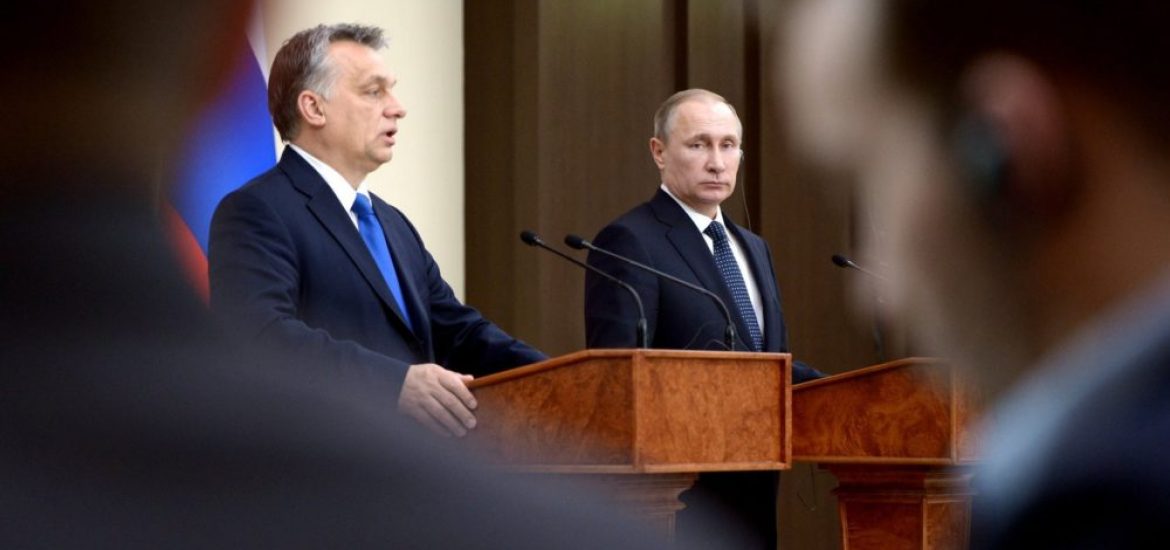
The ability of the TurkStream pipeline to bring Russian gas to Central Europe, bypassing Ukraine, was on the agenda for Hungarian Prime Minister Viktor Orban and Russian President Vladimir Putin who met in Budapest yesterday (Wednesday).
The populist Orban, 55, in power since 2010, has a strong relationship with Putin. The pair, who met twice last year, have held talks at least annually over the previous five years.
“Putin has to agree with all the countries involved so that there wouldn’t be any trouble with the pipeline,” an unnamed source from the talks reportedly told Reuters.
Hungarian Foreign Minister Peter Szijjarto said when TurkStream was linked to Bulgaria it would open up a new delivery route to Hungary.
The current gas transit agreement between Russia and Ukraine expires on December 31.
Russia plans to launch the first part of the TurkStream pipeline, with an annual capacity of 15.75 billion cubic metres, by the end of this year to supply Turkey. The second half, with equal capacity, is due to link Bulgaria, Serbia and Hungary.
Next week Turkish President Recep Tayyip Erdogan is due to visit Orban in Budapest. The strongman president has praised Orban for his “support” of Turkish military operations in Syria.
Orban has said Hungary’s national interest lies in allying with Turkey to avoid it sending millions of Syrian refugees sheltering in Turkey towards the European Union.
Hungary had an annual gas consumption of around 10 billion cubic metres (bcm) and almost 6.5 bcm of gas in storage, Szijjarto said.
“I reject all western European criticism regarding our co-operation with Russia in the field of energy,” the minister said. He added that Hungary had no alternative but to rely on Russian gas.
Orban has called for an ending to economic sanctions imposed after the 2014 Russian occupation of Crimea.
Hungary in 2014 signed a deal with Russia for two new reactors at its Paks nuclear station about 100km south of Budapest to be built by Russia’s state-run nuclear energy firm, Rosatom, and funded with a €10-billion loan from Moscow. The site will be owned and operated by the Hungarian government.
But the programme has been stalled for years.
An older nuclear plant, the Paks I, built by Russia in the 1980s, was close to disaster in 2003. The Hungarian Atomic Energy Authority purportedly blamed the French nuclear firm Framatome for “an inadequate cooling device which resulted in overheated fuel rods, almost causing a Chernobyl-like disaster”. The rods were subsequently taken to Russia to be neutralised.
Russian President Vladimir Putin and Hungary’s nationalist Prime Minister Viktor Orban meet regularly. Picture credit: Kremlin





